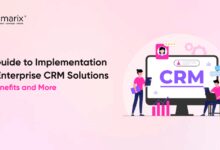AI-Powered CRM Software: 7 Revolutionary Benefits You Can’t Ignore
In today’s hyper-competitive business world, staying ahead means leveraging every technological edge available. Enter AI-powered CRM software — the game-changer transforming how companies manage customer relationships, predict behavior, and drive sales. This isn’t just automation; it’s intelligence in action.
What Is AI-Powered CRM Software?

At its core, AI-powered CRM software integrates artificial intelligence technologies into traditional customer relationship management systems. This fusion enables businesses to go beyond static data storage and basic automation, unlocking dynamic insights, predictive analytics, and intelligent workflows that adapt in real time.
Defining AI in CRM Context
Artificial Intelligence (AI) in CRM refers to the use of machine learning algorithms, natural language processing (NLP), and data analytics to interpret customer interactions, anticipate needs, and automate responses. Unlike rule-based automation, AI learns from data patterns and improves over time without explicit programming.
- Machine Learning: Enables systems to recognize patterns in customer behavior and adjust strategies accordingly.
- Natural Language Processing: Powers chatbots and sentiment analysis by understanding human language in emails, chats, and social media.
- Predictive Analytics: Forecasts future customer actions based on historical data.
“AI doesn’t replace humans in CRM — it amplifies their ability to deliver personalized, timely, and relevant experiences.” — Gartner Research, 2023
Evolution from Traditional CRM to AI-Driven Systems
Traditional CRM platforms were primarily databases for storing customer information, tracking sales pipelines, and managing service tickets. While useful, they required manual input and offered limited analytical depth.
The shift began with cloud-based CRMs like Salesforce and HubSpot, which improved accessibility and integration. The next leap came with embedded AI tools like Einstein AI and HubSpot’s Content Assistant, turning passive systems into proactive advisors.
- Phase 1: Contact Management (1990s–2000s)
- Phase 2: Automation & Workflow (2000s–2010s)
- Phase 3: Intelligence & Prediction (2010s–Present)
Today’s AI-powered CRM software doesn’t just record what happened — it tells you what’s likely to happen and suggests how to act.
Top 7 Benefits of AI-Powered CRM Software
The integration of AI into CRM platforms delivers transformative advantages across departments. From boosting sales efficiency to enhancing customer satisfaction, these benefits are reshaping business outcomes.
1. Hyper-Personalized Customer Experiences
One of the most powerful capabilities of AI-powered CRM software is personalization at scale. By analyzing vast datasets — including purchase history, browsing behavior, and communication tone — AI tailors interactions to individual preferences.
- Dynamic email content that changes based on user behavior.
- Product recommendations powered by collaborative filtering algorithms.
- Personalized landing pages generated in real time.
For example, Netflix uses similar AI-driven personalization to recommend content, increasing engagement by up to 80%. In CRM, this translates to higher conversion rates and stronger loyalty.
2. Predictive Lead Scoring and Sales Forecasting
AI-powered CRM software revolutionizes lead management by predicting which prospects are most likely to convert. Traditional lead scoring relies on static rules (e.g., job title + company size), but AI evaluates hundreds of behavioral signals.
- Engagement level with emails and website.
- Social media activity and intent signals.
- Historical conversion patterns of similar leads.
Salesforce’s Einstein Lead Scoring, for instance, uses machine learning to assign dynamic scores that update in real time. According to Salesforce, companies using AI-driven lead scoring see up to a 30% increase in conversion rates.
“Predictive lead scoring reduces guesswork and focuses sales teams on high-potential opportunities.” — Salesforce.com
3. Intelligent Automation of Routine Tasks
AI-powered CRM software automates repetitive tasks that drain productivity. This includes data entry, follow-up scheduling, meeting logging, and even drafting responses.
- Automatic logging of calls and emails into the CRM.
- Smart calendar integration that suggests optimal meeting times.
- AI-generated email drafts based on context and tone.
Tools like Microsoft Dynamics 365 Copilot can summarize customer conversations and extract action items, saving sales reps up to 5 hours per week. This allows teams to focus on relationship-building rather than administrative work.
4. Real-Time Sentiment Analysis and Customer Insights
Understanding customer emotions is critical for service and retention. AI-powered CRM software uses NLP to analyze sentiment in support tickets, chat logs, and social media mentions.
- Detects frustration, satisfaction, or urgency in customer messages.
- Triggers alerts for high-risk cases (e.g., angry customers).
- Provides coaching suggestions for support agents.
Zendesk’s Answer Bot, for example, uses sentiment analysis to escalate negative interactions to human agents faster, reducing churn risk. A study by PwC found that 32% of customers would stop doing business with a brand after just one bad experience — making real-time insight crucial.
5. Enhanced Cross-Selling and Upselling Opportunities
AI identifies hidden revenue opportunities by analyzing customer behavior and purchase patterns. Instead of generic upsell prompts, AI-powered CRM software delivers contextually relevant offers.
- Recommends complementary products based on past purchases.
- Predicts when a customer is ready for an upgrade.
- Identifies at-risk customers who might benefit from premium support.
Amazon’s recommendation engine, driven by AI, accounts for 35% of its total sales. CRM systems like Zoho CRM’s Zia AI replicate this logic within B2B and B2C environments, increasing average order value by up to 20%.
6. Smarter Customer Service with AI Chatbots
AI-powered CRM software integrates intelligent chatbots that handle common queries 24/7, reducing response times and freeing human agents for complex issues.
- Resolves password resets, order status checks, and FAQs instantly.
- Learns from past interactions to improve accuracy.
- Seamlessly transfers conversations to live agents when needed.
According to IBM, businesses using AI chatbots can reduce customer service costs by up to 30%. Platforms like Freshdesk’s Freddy AI combine CRM data with conversational AI to deliver personalized support without delays.
7. Data-Driven Decision Making Across Teams
AI-powered CRM software transforms raw data into actionable insights for executives, marketers, and operations teams. Dashboards powered by AI highlight trends, anomalies, and opportunities.
- Identifies declining engagement in specific customer segments.
- Recommends optimal pricing or discount strategies.
- Forecasts churn risk and suggests retention tactics.
For example, Oracle’s AI-driven CRM provides executive dashboards that predict quarterly revenue with 90%+ accuracy, enabling proactive strategy adjustments.
How AI-Powered CRM Software Works: The Technology Behind the Magic
Understanding the inner workings of AI-powered CRM software demystifies its capabilities and helps organizations choose the right solution.
Data Ingestion and Integration
AI models require vast amounts of data to function effectively. AI-powered CRM software pulls information from multiple sources:
- Internal systems: Email, calendars, ERP, and legacy databases.
- External platforms: Social media, website analytics, and third-party data providers.
- Customer interactions: Calls, chats, surveys, and support tickets.
Modern CRMs use APIs and middleware like MuleSoft or Zapier to ensure seamless data flow. Without robust integration, AI insights remain fragmented and unreliable.
Machine Learning Models and Training
Once data is collected, machine learning models are trained to recognize patterns. These models fall into three main categories:
- Supervised Learning: Uses labeled data (e.g., “converted” vs. “not converted”) to predict outcomes.
- Unsupervised Learning: Finds hidden patterns in unlabeled data, such as customer segmentation.
- Reinforcement Learning: Learns through trial and error, often used in chatbot optimization.
Training requires clean, consistent data and ongoing feedback loops. For example, if a sales rep overrides an AI-generated lead score, the system learns from that correction.
Natural Language Processing (NLP) in Action
NLP allows AI-powered CRM software to understand and generate human language. This is essential for:
- Transcribing and summarizing sales calls (e.g., Gong.io).
- Analyzing customer emails for intent and sentiment.
- Powering voice assistants within CRM interfaces.
Google’s BERT and OpenAI’s GPT models have significantly improved NLP accuracy, enabling CRM tools to grasp context, sarcasm, and urgency in customer communications.
Leading AI-Powered CRM Software Platforms in 2024
Several platforms dominate the AI-powered CRM software market, each offering unique strengths. Choosing the right one depends on business size, industry, and integration needs.
Salesforce Einstein AI
Salesforce remains the leader in AI-powered CRM software, with Einstein AI embedded across its Sales, Service, and Marketing Clouds.
- Predictive lead and opportunity scoring.
- Automated case classification in service desks.
- AI-driven email optimization (send time, subject line).
Einstein GPT, launched in 2023, generates personalized content using generative AI. According to Salesforce, clients using Einstein see a 25% increase in sales productivity. Learn more at salesforce.com/einstein.
HubSpot CRM with AI Features
HubSpot combines user-friendliness with powerful AI tools, making it ideal for SMBs and mid-market companies.
- AI-powered email writer and meeting summaries.
- Content suggestions for blogs and social media.
- Smart contact scoring based on engagement.
HubSpot’s AI tools are accessible without coding, lowering the barrier to entry. Their free CRM tier includes basic AI features, making it one of the most democratized platforms. Explore at hubspot.com/crm.
Microsoft Dynamics 365 + Copilot
Microsoft’s AI-powered CRM software integrates deeply with Office 365 and Teams, appealing to enterprise users.
- Dynamics 365 Sales Insights offers AI-driven recommendations.
- Copilot summarizes customer interactions and drafts responses.
- Seamless integration with Outlook, Excel, and Power BI.
For organizations already in the Microsoft ecosystem, this CRM offers unparalleled synergy. It’s particularly strong in manufacturing and professional services. More info: dynamics.microsoft.com.
Zoho CRM and Zia AI
Zoho offers a cost-effective AI-powered CRM software suite with robust automation and AI capabilities.
- Zia AI provides voice-assisted search and sales forecasting.
- Leads module uses AI to prioritize prospects.
- Workflow automation with natural language commands.
Zoho’s strength lies in affordability and customization. It’s a top choice for startups and growing businesses. Visit zoho.com/crm for details.
Implementation Challenges and How to Overcome Them
Despite its benefits, adopting AI-powered CRM software comes with challenges. Organizations must navigate data quality, change management, and technical integration.
Data Quality and Cleanliness
AI models are only as good as the data they’re trained on. Incomplete, outdated, or duplicated records lead to inaccurate predictions.
- Implement data governance policies.
- Use AI-powered CRM tools with built-in data cleansing (e.g., Salesforce Data Quality).
- Regularly audit and update customer records.
According to Experian, 77% of businesses say poor data quality hampers their AI initiatives. Cleaning data before AI deployment is non-negotiable.
User Adoption and Training
Employees may resist AI tools due to fear of job displacement or complexity. A study by McKinsey found that 47% of AI projects fail due to lack of user adoption.
- Provide hands-on training and real-world use cases.
- Highlight time-saving benefits (e.g., “AI will write your follow-up emails”).
- Involve teams in the selection and rollout process.
Change management is as important as the technology itself.
Integration with Legacy Systems
Many companies still rely on outdated ERP or database systems that don’t easily connect with modern AI-powered CRM software.
- Use integration platforms like MuleSoft or Dell Boomi.
- Phase the rollout: Start with one department (e.g., sales) before scaling.
- Choose CRM vendors with strong API support and pre-built connectors.
Hybrid cloud solutions can bridge the gap between old and new systems during transition.
Future Trends in AI-Powered CRM Software
The evolution of AI-powered CRM software is accelerating. Emerging technologies will redefine customer engagement in the coming years.
Generative AI for Content Creation
Generative AI is moving beyond chatbots to create entire marketing campaigns, sales scripts, and support articles.
- AI writes personalized outreach emails in seconds.
- Generates product descriptions tailored to customer segments.
- Creates training materials for onboarding new reps.
Tools like Jasper and Copy.ai are already being integrated into CRM workflows. The future? AI co-pilots that draft entire customer strategies.
Predictive Customer Journey Mapping
AI will soon map not just current behavior but future customer journeys. By simulating thousands of scenarios, CRM systems will predict the optimal path to conversion.
- Identifies friction points before they occur.
- Recommends personalized touchpoints (email, call, ad).
- Simulates the impact of pricing or messaging changes.
This level of foresight will transform marketing from reactive to proactive.
Emotion AI and Voice Analytics
Next-generation AI-powered CRM software will detect emotions through voice tone and facial expressions (in video calls).
- Measures customer frustration during support calls.
- Coaches sales reps on tone and pacing.
- Flags high-risk interactions in real time.
Companies like Cogito already offer voice analytics that improve call center performance by 20%+.
Measuring the ROI of AI-Powered CRM Software
Investing in AI-powered CRM software requires justification. Key performance indicators (KPIs) help quantify its impact.
Sales Efficiency Metrics
Track how AI improves sales team productivity:
- Reduction in time spent on data entry.
- Increase in meetings booked per rep.
- Shorter sales cycle duration.
For example, a company using AI for lead scoring might reduce its sales cycle by 15%, directly boosting revenue.
Customer Satisfaction and Retention
AI impacts customer experience metrics:
- Net Promoter Score (NPS) improvements.
- Customer Satisfaction (CSAT) scores.
- Churn rate reduction.
A 5% increase in customer retention can increase profits by 25% to 95% (Bain & Company). AI-driven insights make this achievable.
Revenue Growth and Conversion Rates
The ultimate measure of success:
- Lead-to-customer conversion rate.
- Average deal size.
- Monthly recurring revenue (MRR) growth.
Businesses using AI-powered CRM software report an average 20% increase in sales conversions, according to Nucleus Research.
Best Practices for Adopting AI-Powered CRM Software
To maximize success, follow these proven strategies when implementing AI-powered CRM software.
Start with Clear Objectives
Define what you want to achieve: faster sales cycles, better service, or higher retention. Align AI features with these goals.
- Don’t adopt AI just because it’s trendy.
- Map AI capabilities to specific business problems.
- Set measurable KPIs before rollout.
Prioritize Data Readiness
Ensure your data is clean, centralized, and accessible. Migrate legacy data, remove duplicates, and standardize formats.
- Use data quality tools within your CRM.
- Assign data stewards to maintain integrity.
- Start with a pilot using a clean dataset.
Train Teams and Foster Adoption
Provide ongoing training and support. Showcase quick wins to build momentum.
- Run workshops on AI features.
- Create internal champions.
- Gather feedback and iterate.
Monitor, Optimize, and Scale
AI is not a “set and forget” solution. Continuously monitor performance and refine models.
- Review AI predictions vs. actual outcomes.
- Retrain models with new data.
- Scale successful pilots to other departments.
What is AI-powered CRM software?
AI-powered CRM software integrates artificial intelligence technologies like machine learning and natural language processing into customer relationship management systems to automate tasks, predict customer behavior, and deliver personalized experiences at scale.
How does AI improve lead scoring in CRM?
AI improves lead scoring by analyzing hundreds of behavioral and demographic data points — such as email engagement, website visits, and social activity — to dynamically predict which leads are most likely to convert, reducing guesswork and increasing sales efficiency.
Can small businesses benefit from AI-powered CRM software?
Yes, small businesses can benefit significantly. Platforms like HubSpot and Zoho offer affordable, easy-to-use AI-powered CRM software with features like automated emails, smart lead scoring, and AI chatbots that help small teams compete with larger organizations.
Is AI in CRM replacing human sales and support teams?
No, AI is not replacing humans — it’s augmenting them. AI handles repetitive tasks and provides insights, allowing human teams to focus on building relationships, solving complex issues, and delivering empathetic service.
What are the risks of using AI-powered CRM software?
Risks include poor data quality leading to inaccurate predictions, over-reliance on automation, privacy concerns, and employee resistance. These can be mitigated with strong data governance, training, and ethical AI practices.
AI-powered CRM software is no longer a futuristic concept — it’s a present-day necessity for businesses aiming to thrive in a data-driven world. From automating mundane tasks to unlocking deep customer insights, the benefits are clear and measurable. The key to success lies in choosing the right platform, preparing your data, and fostering team adoption. As AI continues to evolve, the CRM systems of tomorrow will not just respond to customers — they’ll anticipate their needs, predict their actions, and personalize every interaction. The future of customer relationship management is intelligent, proactive, and powered by AI.
Further Reading:


